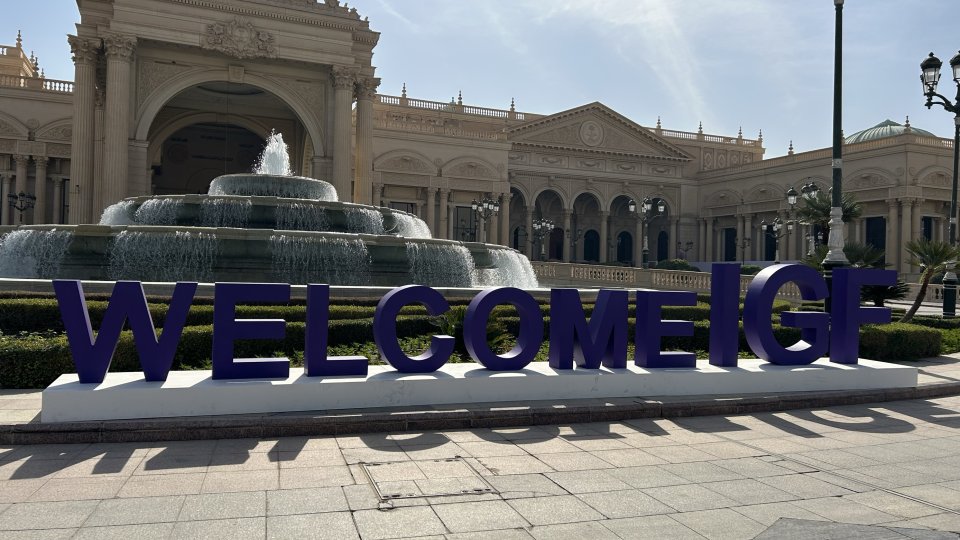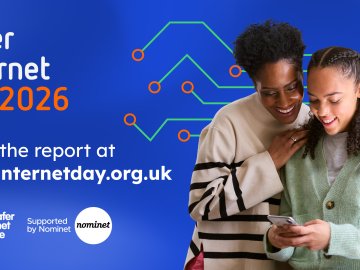From December 15 to 19, 2024, the King Abdulaziz International Conference Center in Riyadh, Saudi Arabia, hosted IGF Riyadh 2024, a landmark global event focused on the future of the internet. Bringing together over 10,000 participants from 175 countries, the Internet Governance Forum featured more than 1,000 international speakers, including representatives from Meta, The World Bank, ITU, and ICANN.
Under the theme "Building Our Multistakeholder Digital Future," the event explored critical issues in digital governance through 300 sessions, workshops, and panel discussions. Topics ranged from fostering innovation and inclusion to balancing digital risks and strengthening governance frameworks.
SWGfL was honoured to organise and participate in this influential gathering, contributing to two pivotal workshops that addressed pressing global concerns: the ethical use of AI in combating non-consensual intimate image (NCII) abuse and the complex balance between encryption, privacy, and public safety.
Bridging Gaps—AI & Ethics in Combating NCII Abuse
In the session "Bridging Gaps: AI & Ethics in Combating NCII Abuse," SWGfL collaborated with global experts to address the escalating challenge of AI-driven NCII abuse, including the misuse of deepfake technology. The discussion highlighted the critical intersection of technology, ethics, and gender-based violence in today’s digital landscape.
Drawing from SWGfL’s pioneering initiatives like StopNCII.org and the Revenge Porn Helpline’s research, the workshop explored:
- AI-Driven Risks: The alarming rise of AI-enabled NCII abuse and its disproportionate impact on women, exacerbated by deepfake technology.
- Proactive Solutions: The use of tools like PhotoDNA and calls for companies to partner with StopNCII.org to adopt its hash technology as a preventative measure.
- Global Collaboration: Advancing unified international responses, including alignment with the UN Cybercrime Convention and the UNODC Global Strategy, to establish robust legal frameworks and ethical, technology-led interventions.
The session delivered actionable insights and policy recommendations, including a roadmap for global cooperation to counter AI-facilitated NCII abuse. SWGfL’s leadership in championing victim support, fostering ethical innovation, and advocating for comprehensive partnerships underscored its pivotal role in safeguarding individuals worldwide.
Balancing Acts—Encryption, Privacy, and Public Safety
The second session, "Balancing Acts: Encryption, Privacy, and Public Safety," tackled one of the most debated issues in the digital realm—how to protect personal privacy while addressing public safety concerns.
SWGfL joined a panel of experts to discuss the complexities of encryption technologies, such as end-to-end encryption (E2EE), emerging technical standards, and their implications for preventing online harms like child exploitation and cybercrime.
Key discussions included:
- ‘Weaponisation of Privacy’: Panellists highlighted how privacy arguments are sometimes misused to obstruct essential public safety measures, particularly those designed to protect children. This imbalance often benefits the privileged while leaving vulnerable groups unprotected.
- Balancing Privacy and Safety: The panel emphasised that privacy and safety are not opposing goals. Innovative approaches, such as detecting harmful content in secure environments before it is encrypted, were presented as ways to protect individual privacy while addressing critical safety concerns.
- Innovative Frameworks: The need for technologies designed with privacy and safety at their core was highlighted. These solutions must account for societal impacts, ensuring they protect vulnerable populations and uphold human rights without undermining trust in encryption.
- Global Cooperation: The session underscored the importance of collaboration among policymakers, industry leaders, and NGOs to harmonise encryption standards and policies that reflect diverse perspectives and global needs.
- The workshop concluded that privacy and safety must be pursued together, rejecting the false dichotomy that one must come at the expense of the other. The IGF was celebrated as a vital forum for advancing multi-stakeholder dialogue, with panellists calling on leaders across sectors to ensure technological advancements work for everyone, especially society’s most vulnerable.
SWGfL’s Role in Global Digital Governance
SWGfL’s participation and organisation at IGF Riyadh 2024 underscored its dedication to leading the conversation on digital safety and governance. By addressing critical issues such as AI ethics and protections, SWGfL reaffirmed its commitment to ensuring a safer digital world for all.
As the forum closed, the outcomes from these workshops and other sessions set the stage for continued innovation and collaboration in 2025. With initiatives like StopNCII.org and a growing global presence, SWGfL remains at the forefront of online safety advocacy and digital innovation.






